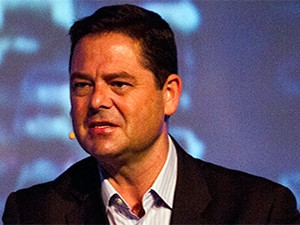
Driverless cars are being adopted at a much faster pace than anybody anticipated. There are already driverless taxis operating in Singapore, and Fitchburg in California is about to legalise driverless cars, but what will it all mean five to ten years from now?
This was the question posed by Dr Graeme Codrington, futurist and founder of future trends company, Tomorrow Today, speaking at the Qlik Southern Africa Summit 2017 held in Johannesburg yesterday. Codrington spoke about the future of driverless cars, pointing out that we live at an inflection point in history, a time when there is a major digital shift in business models and the rules for success and failure are being re-written.
The digital shift brought about by driverless cars, he explained, will not only disrupt a particular industry, but it will ripple across the entire globe. Codrington highlighted the two things that will happen almost simultaneously within the motoring technology industry in the near future:
"Firstly we will move very quickly from legalising driverless cars to having compulsory driverless cars, and then in future this will transcend into shared driverless cars. It's only when every single car on a particular traffic system has gone completely driverless, that we will reap the benefits and see the real depth of the concept of driverless cars. This will enable every car to speak to the next car about the traffic congestion ahead, allowing cars to automatically determine the shortest route with less traffic to any destination."
An average car spends around 96% of its life sitting in the parking lot, he continued, but if an average car was driverless, and used its full potential, it would drop off its owner at work and then spend the rest of the day doing something useful, such as carrying people around the city and using the time to make money - before coming back in the afternoon to pick up its owner from work.
As soon as we've moved from legalising driverless cars we'll move quickly to compulsory driverless cars and then well move from that to shared cars, he noted.
"Driverless cars will not only solve our road carnage rate, through safer driving habits, but they will also ease the traffic congestion, solve air pollution through decreasing greenhouse gas emissions, and better road traffic habits will translate to less traffic offences.
"About 20% of real estate space in Sandton is made up of parking space, therefore if driverless cars are being used around the clock, more parking space can be used for something useful - building more shops and offices. Regional airlines would also be impacted as travelling passengers would prefer to use a driverless car to travel to other provinces, while enjoying a nap on their way there," he asserted.
Codrington advised CEOs and executive teams to start thinking more along the lines of
driverless cars for business purposes, as this may have more advantages than flying.
"We are living at the cusp of exponential change, where something that happens in one industry may have an effect on what happens in your industry. We need to think about what skills, good business habits and which systems and processes could be best utilised to enable us to be successful during times of disruption and exponential change," he concluded.
Share